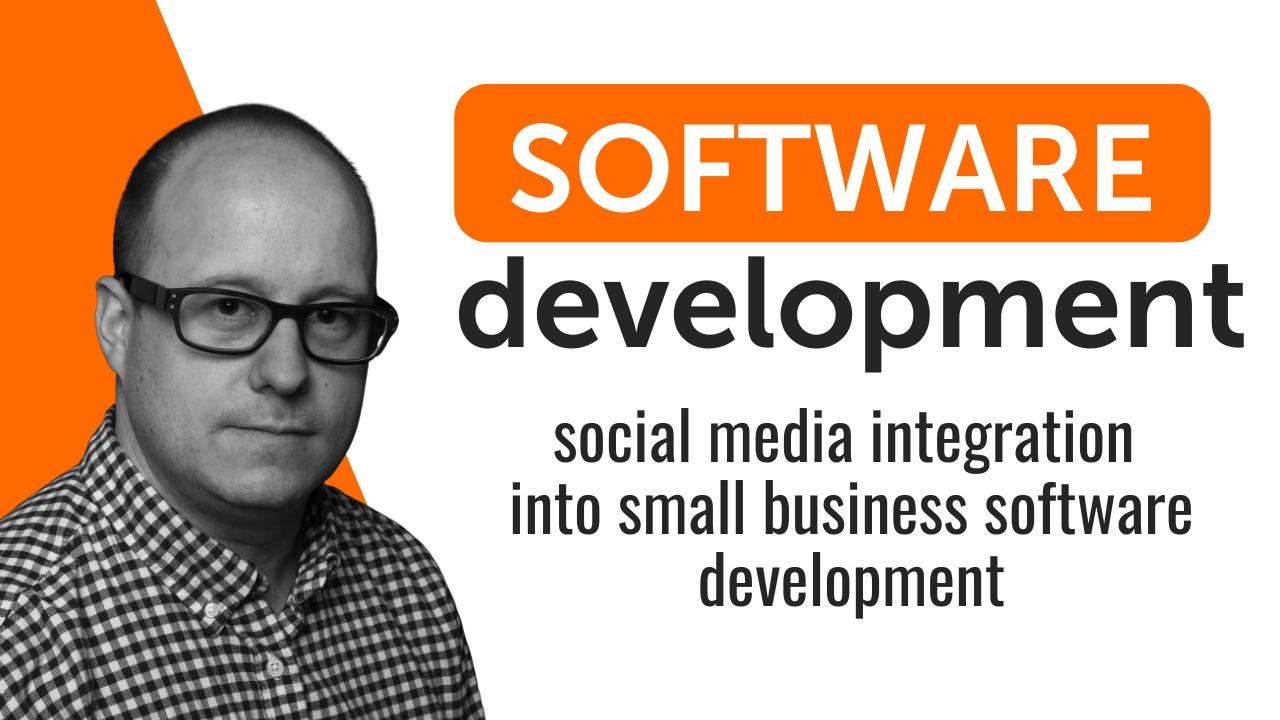
In the digital age, integrating social media with business operations is not just an advantage; it's a necessity. In a small business, where resources are scant and every asset needs to be maximised, the functionality of social media seamlessly merging with their software systems could drastically improve their reach and engagement with their target audience. Such strategic integration will allow the business to tap into the vast networks of social media to increase visibility and, at the same time, interact more effectively with customers.
- The Strategic Importance Of Social Media In Business Software
- Benefits of Social Media Integration in Business Software
- Utilising Small Business Software with Integrated Social Media
- Implementing Social Media Integration in Software Development
- Harnessing the Synergy of Social Media and Business Software
- Call to Action: Embrace Integration for Business Growth
The Strategic Importance Of Social Media In Business Software
Social media offers a platform for real-time engagement, customer feedback, and direct marketing. Integrating such capabilities into business software enables a small business to use this powerful tool for customer relationship management and marketing without adding resources or another solution that stands alone. This helps in a unified strategy whereby insights and engagements from social media directly influence business decisions and customer interactions.
Objective of This Article
This article is crafted for entrepreneurs, small business owners, and software developers looking to deepen their understanding of social media integration within business software. We will explore:
- Key Benefits: Highlighting the direct benefits of integrating social media functionalities, such as improved customer service, enhanced marketing efforts, and streamlined communication.
- Practical Implementation: Offering insights into how these integrations can be implemented within various types of business software to maximise efficiency and effectiveness.
- Future Trends: Discuss upcoming trends in technology that could influence future integration strategies and how businesses can prepare to adopt these innovations.
By the end of this discussion, you will have clear strategies that explain why this integration is essential, and you will know how to implement and leverage such functionalities within your business operations effectively.
Benefits of Social Media Integration in Business Software
Integrating social media into business software systems offers enormous benefits to small businesses, from enhanced customer engagement to effective marketing strategies. In the modern digital era, putting these elements together into a cohesive system is advantageous and vital in terms of competitiveness and responsiveness to customers.
Enhanced Customer Engagement;
Direct Interaction with Customers: By integrating your business into social media, direct interaction between the company and customers has been made possible on platforms that customers prefer. Such immediate one-on-one communication resolves problems faster and provides feedback that enhances customer satisfaction, and hence, trust and loyalty are built.
Real-Time Feedback and Insights: Businesses gain access to real-time customer feedback by integrating social media.
Streamlined Marketing Efforts;
Automated Posting and Scheduling: Integrating social media tools within business software automates the process of posting and scheduling content across various platforms. This ensures consistent engagement with your audience without requiring constant manual input.
Targeted Advertising: Social media integration allows small businesses to harness detailed demographic and behavioural data to tailor advertising campaigns effectively—this targeted approach results in higher conversion rates and better ROI on marketing spend.
Cost-Effective Customer Service;
Social Media as a Support Channel: Using integrated social media tools, small businesses can offer support directly through platforms like Facebook and Twitter, reducing the need for extensive call centre operations. This cuts costs and meets customers where they are, enhancing their experience with your brand.
Utilising Small Business Software with Integrated Social Media
Small business software that integrates social media functionalities can be a game-changer for companies looking to scale efficiently. This type of software helps small enterprises manage multiple functions — from customer relationship management and sales to marketing and customer support — within a single platform. It eliminates the need to switch between various tools, saving time and reducing costs while providing a holistic view of customer interactions and marketing effectiveness.
Implementing Social Media Integration in Software Development
Integrating social media with small business software significantly improves customer interaction and marketing effectiveness. This section highlights practical steps for implementing social media functionalities into business software development to ensure that small businesses can leverage these tools effectively.
Identifying Essential Social Media Functionalities;
Determine Business Needs: Before integrating social media features, identify the business's specific needs. Are you looking to enhance customer service, improve engagement, or streamline marketing efforts? Understanding these goals will guide the type of functionalities that should be integrated.
Select Relevant Platforms: Choose which social media platforms are most relevant to your target audience. For most businesses, Facebook, Twitter, and Instagram will be essential, but others, like LinkedIn or Pinterest, could be valuable based on your industry and customer demographics.
Technical Integration Strategies;
API Utilisation: Most social media platforms offer APIs (Application Programming Interfaces) that allow external software to interact with their systems. Use these APIs to integrate social media functionalities such as posting, tracking engagement, or managing ad campaigns directly from your business software.
Handling Data: Ensure robust data handling capabilities, especially for analysing social media interactions and engagement metrics.
Privacy and Security Considerations: When integrating social media, be mindful of data privacy laws such as GDPR. Ensure customer data is handled securely, with transparent privacy policies.
Best Practices for Development;
User Experience (UX) Design: The integration should be seamless, offering a user-friendly interface that makes navigating easy for business owners and marketers. For instance, a dashboard aggregating social media metrics alongside other business analytics can provide a comprehensive overview of performance at a glance.
Testing and Quality Assurance: Rigorous testing is essential to ensure the integrated features work as intended without bugs or glitches. Regular updates based on user feedback and changes to social media platform policies are also crucial to maintain functionality.
Scalability: Design the integration with scalability in mind. As the business grows, the software should easily accommodate increased data loads and additional functionalities without significant overhauls.
Harnessing the Synergy of Social Media and Business Software
As we conclude our exploration of social media integration in small business software, it's clear that the strategic merging of these technologies is not a mere trend but a sea change in how businesses communicate with customers and manage business. Blending social interactions into business processes allows for more frictionless, responsive, and practical ways to conduct customer relationships and marketing.
The advantages of integrating social media go beyond simple convenience into the full-scale enhancement of the capability to compete for a small business in a digitally-driven market. Through appropriate means, integrated systems provide direct engagement with consumers, how to track engagement metrics, and smoothing marketing efforts, which become the lifeline for survival and success.
Leveraging Data to Drive Strategic Decisions
Integrating social media features into business applications creates essential data upon which to base marketing and customer relations. Metrics like engagement rates, conversion rates, and customer feedback become part of a data-driven business development approach. With e-mail KPI metrics, e-mail KPIs, and KPIs for the e-mail marketing component, this strategy can be even better with much more inside knowledge about customers' behaviour and the bottom line of the marketing campaigns.
Call to Action: Embrace Integration for Business Growth
Integrating social media should be essential in software development strategy for growing businesses. All businesses should strive to work with developers who have this realisation and shall implement scalable and secure solutions.
Integrating social media functionality into business software goes beyond a technological exercise; it's a strategic upgrade that leverages the new paradigm of business conduct and consumer behaviour.
Interested In Working Together?
Introducing Delivered Social. We're The Most-Rated Digital Agency In Surrey & Hampshire – We've Got To Be Doing Something Right.
Delivered Social is a digital marketing agency with one mission—to help businesses grow. We're famous in Guildford and Portsmouth for our social clinics. We believe in free advice. We build lasting relationships because our team prides itself on being helpful, which our clients appreciate.
If you are looking for a new website or an agency to manage your social media presence, we can help.
If you need something slightly different, here's a super handy list of all our services, or you can always email us.























